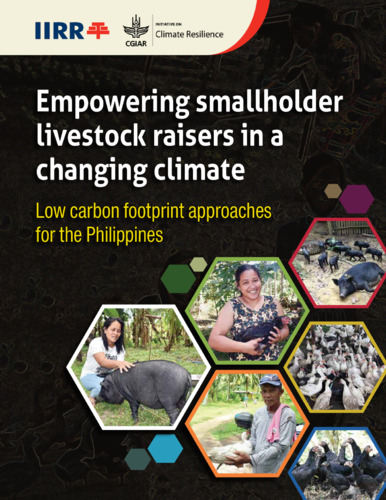Empowering smallholder livestock raisers in a changing climate (Low carbon footprint approaches for the Philippines)
Abstract
As part of its efforts to support economically disadvantaged smallholder farmers in the Philippines, the CGIAR Climate Resilience Initiative has implemented agroforestry and climate-smart agriculture programs aimed at improving food security and nutrition. These initiatives encourage crop diversification and the introduction of small livestock, including chickens, ducks, and pigs, to enhance farmers' diets and increase their climate resilience. This program has not only improved nutrition but also generated additional income for participating farmers, with 30 households earning between PHP 4,000 and PHP 28,000 from livestock sales.
This work raised important questions about further strengthening smallholder farms against the impacts of climate change, particularly in vulnerable regions like the Philippines. The study examines the challenges smallholder farmers face in raising livestock and explores strategies to improve climate resilience. Special attention is given to the role of women, who are often the primary caretakers of livestock, as well as current management practices and mitigation strategies. This paper presents findings from research on smallholder farms in the Philippines, offering insights into enhancing the climate adaptability of rural agricultural systems.

